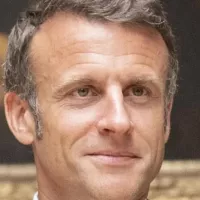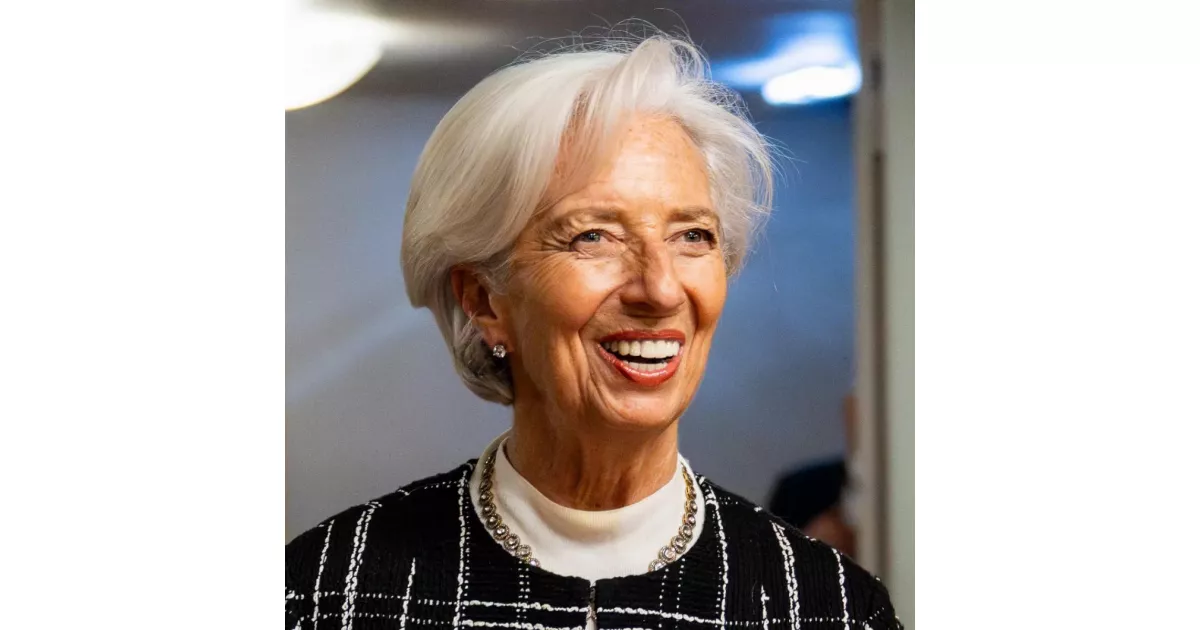Discover the career path of Christine Lagarde, from the first major opportunity to industry-changing achievements.
Christine Lagarde is a prominent French politician and lawyer. She holds the distinction of being the first woman to lead the European Central Bank (ECB), a position she has held since 2019. Prior to the ECB, Lagarde served as the Managing Director of the International Monetary Fund (IMF) from 2011 to 2019. Her career also includes significant roles in the French government, most notably as the Minister of the Economy, Finance and Industry from 2007 to 2011. Her leadership across international and national institutions marks her as a significant figure in global economics and politics.
1981: Joined Baker & McKenzie
In 1981, Christine Lagarde joined Baker & McKenzie, a large Chicago-based international law firm.
1995: Member of the executive committee
In 1995, Christine Lagarde became a member of the executive committee of Baker & McKenzie.
October 1999: First female chairman
In October 1999, Christine Lagarde was elected the company's first female chairman at Baker & McKenzie.
1999: Chair of Baker & McKenzie
In 1999, Christine Lagarde was elevated to Chair of Baker & McKenzie, becoming the first woman in that position.
2004: President of the Global Strategic Committee
In 2004, Christine Lagarde became president of the Global Strategic Committee.
2004: End of tenure as chair
In 2004, Christine Lagarde's tenure as chair of Baker & McKenzie ended when she decided to go into public service.
2005: France's trade minister
Between 2005 and May 2007, Lagarde served as France's trade minister, prioritizing opening new markets for the country's products, focusing on the technology sector.
2005: Minister of Foreign Trade
In 2005, Christine Lagarde was appointed Minister of Foreign Trade in France.
May 2007: Ministry of Agriculture
On 18 May 2007, Christine Lagarde was moved to the Ministry of Agriculture as part of the government of François Fillon.
June 2007: Minister of Agriculture and Fisheries
In June 2007, Christine Lagarde briefly served as Minister of Agriculture and Fisheries.
2007: Arbitration Deal in Favor of Bernard Tapie
In 2007, during Christine Lagarde's tenure as finance minister, a €403 million arbitration deal was made in favor of businessman Bernard Tapie, leading to subsequent investigations.
2008: Government response to financial crisis
During her tenure, Christine Lagarde oversaw the government response to the 2007–2008 financial crisis.
July 2010: IMF lending program for European countries
In July 2010, Christine Lagarde discussed the IMF's lending program for distressed European countries on PBS NewsHour.
May 2011: Candidacy for head of the IMF
On 25 May 2011, Christine Lagarde announced her candidacy to be head of the IMF to succeed Dominique Strauss-Kahn, upon his resignation.
June 2011: Elected as managing director of the IMF
On 28 June 2011, the IMF board elected Christine Lagarde as its next managing director and chairman for a five-year term, starting on 5 July 2011.
July 2011: Appointment as IMF managing director
In July 2011, Christine Lagarde's five-year term as managing director and chairman of the IMF began.
July 2011: Elected Managing Director of the IMF
On 5 July 2011, Christine Lagarde was elected to replace Dominique Strauss-Kahn as managing director of the IMF for a five-year term.
August 2011: Investigation Ordered into Lagarde's Role in Arbitration Deal
In August 2011, La Cour de Justice de la République ordered an investigation into Christine Lagarde's role in a €403 million arbitration deal favoring businessman Bernard Tapie during her tenure as finance minister in 2007.
2011: Minister of Finance
From 2007 to 2011, Christine Lagarde served as Minister of Finance, making her the first female to hold the finance portfolio of any Group of Eight economy.
2011: Managing Director of the IMF
In 2011, Christine Lagarde became the 11th Managing Director of the International Monetary Fund (IMF).
March 2013: Lagarde's Apartment in Paris Raided
In March 2013, as part of the investigation into the Tapie arbitration deal, French police raided Christine Lagarde's apartment in Paris.
May 2013: Lagarde Assigned "Assisted Witness" Status
In May 2013, after two days of questioning, Christine Lagarde was assigned the status of "assisted witness" by the Court of Justice of the Republic (CJR), indicating she was not under formal investigation at that time regarding the Tapie case.
June 2013: CEO of France Telecom's Testimony
According to a press report from June 2013, Stéphane Richard, CEO of France Telecom, testified that Christine Lagarde was fully briefed before she approved the arbitration process that benefitted Bernard Tapie. Richard himself was under formal investigation in the case.
August 2014: Formal Negligence Investigation Approved
In August 2014, the CJR formally approved a negligence investigation into Christine Lagarde's role in the arbitration of the Tapie case.
2014: Richard Dimbleby Lecture
In 2014, Christine Lagarde delivered the Richard Dimbleby Lecture, titled "A New Multilateralism for the 21st Century".
December 2015: Possible continuation as head of the IMF
On 17 December 2015, Michel Sapin, French Finance Minister, said that Christine Lagarde could stay on as head of the IMF, despite being charged with criminal negligence.
December 2015: Lagarde Ordered to Stand Trial
On 17 December 2015, the CJR ordered Christine Lagarde to stand trial for alleged negligence in handling the Tapie arbitration approval.
July 2016: Second term as Managing Director of the IMF
Starting 5 July 2016, Christine Lagarde was selected by consensus for a second five-year term as Managing Director of the IMF, being the only candidate nominated for the post.
December 2016: Lagarde Found Guilty of Negligence
In December 2016, the court found Christine Lagarde guilty of negligence but did not impose a fine or custodial penalty.
July 2019: Prince Michael of Liechtenstein worried
In July 2019 Prince Michael of Liechtenstein worried that Lagarde had "been extremely supportive of heavy deficit spending and cheap money" and felt that this fact portended ill.
July 2019: Nomination as President of the ECB
On 2 July 2019, Christine Lagarde was nominated by the European Council to succeed Mario Draghi as President of the European Central Bank (ECB).
September 2019: Lagarde's monetary policy
In September 2019 writers for Bloomberg opined that as president Christine Lagarde was expected to maintain the accommodative monetary policy of her predecessor, Mario Draghi.
September 2019: Recommendation to the position
On 17 September 2019, the European Parliament voted via secret ballot to recommend Christine Lagarde to the position of President of the ECB.
November 2019: Succession as President of the ECB
In November 2019, Christine Lagarde succeeded Mario Draghi as President of the European Central Bank (ECB).
2019: President of the European Central Bank
In 2019, Christine Lagarde became the President of the European Central Bank.
July 2024: EU's Revised Economic Governance Framework
In July 2024, Christine Lagarde stated in Frankfurt that fully implementing the EU’s revised economic governance framework without delay would help governments lower budget deficits and debt ratios sustainably. She emphasized the importance of fiscal discipline for member states adhering to the agreed rules. The ECB considered Belgium, Greece, Spain, France, and Italy as "high risk in the medium term" at this time.
September 2024: ECB Primary Interest Rate Cut
In September 2024, Christine Lagarde announced that the ECB's primary interest rate would be cut to 3.5% due to weak eurozone growth, following a drop in inflation to 2.2%.
September 2024: ECB Role and Structural Reforms
On 12 September 2024, Christine Lagarde clarified that the ECB would not assist individual member states in implementing the recommendations from the Draghi report on EU competitiveness, stating that structural reforms are the responsibility of governments, not the central bank.
Mentioned in this timeline
Home Box Office HBO is an American pay television service...
Saudi Arabia officially the Kingdom of Saudi Arabia KSA is...

Inflation in economics signifies an increase in the average price...

Emmanuel Macron is the current President of France and Co-Prince...

HSBC Holdings plc is a British multinational universal bank and...
France officially the French Republic is primarily located in Western...
Trending

Philip Rivers is a retired American football quarterback who played seasons in the NFL Drafted th overall in he spent...
Gregory Kent Bovino is an American law enforcement officer Details about his career specific achievements or any controversies associated with...

2 months ago Guy Fieri Hospitalized After Gruesome On-Set Leg Injury Requiring Emergency Surgery

2 months ago Joy Behar Returns to 'The View' After Painful Injury: Details Revealed

7 months ago Tensions rise in Middle East, India celebrates Yoga, Cyprus hosts rap battles.

Derrick Rose nicknamed D-Rose is a former American professional basketball player After a year at Memphis he was drafted first...
Popular

Thomas Douglas Homan is an American law enforcement officer who...

Martin Luther King Jr was a pivotal leader in the...

XXXTentacion born Jahseh Dwayne Ricardo Onfroy was a controversial yet...

Instagram is a photo and video-sharing social networking service owned...

Jupiter is the fifth and largest planet from the Sun...

KFC or Kentucky Fried Chicken is an American fast-food chain...
